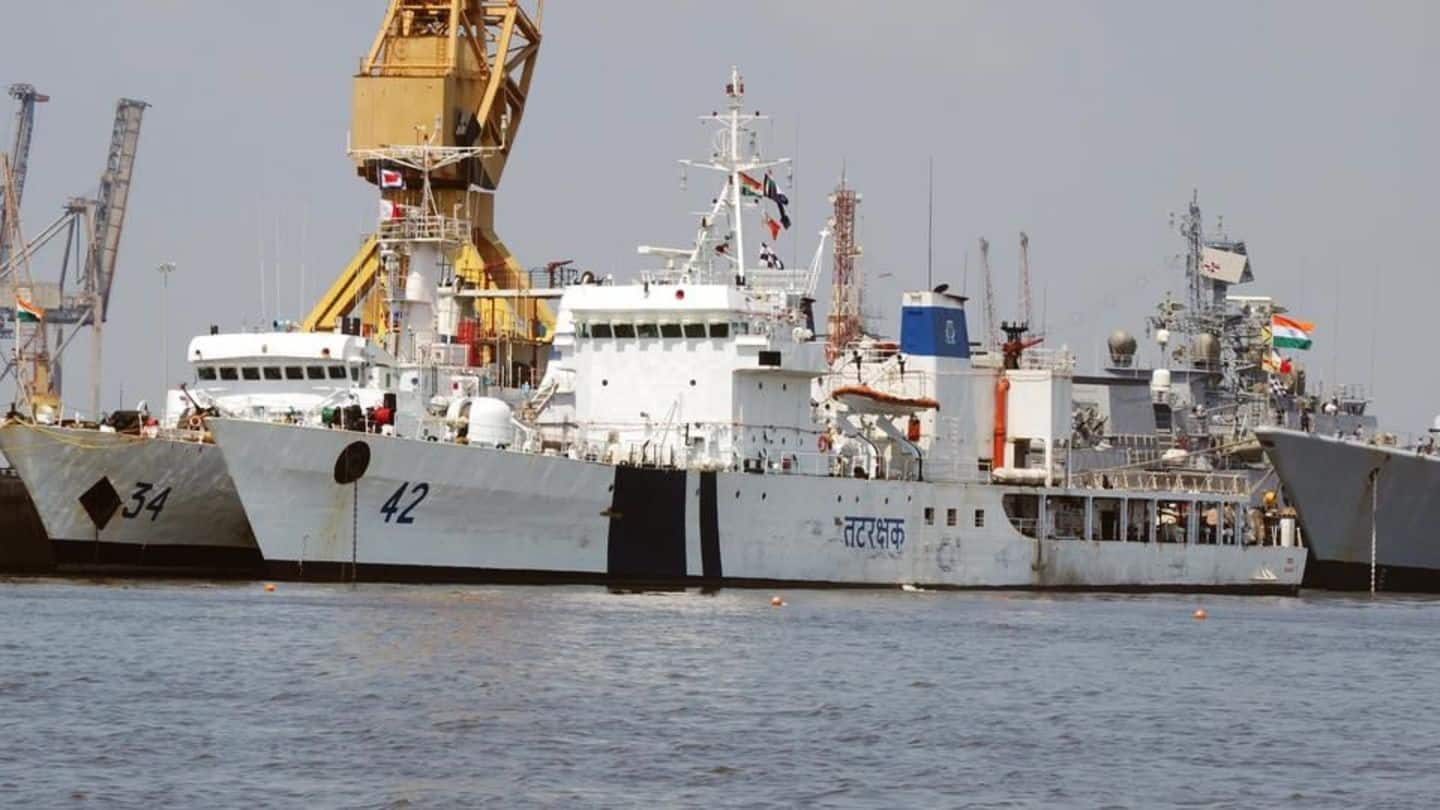
Centre approves Rs. 32,000 cr plan to modernize Coast Guard
What's the story
The Indian government has approved a Rs. 31,748 crore "definitive five-year action programme" to modernize the Indian Coast Guard (ICG). The move will arm the ICG, currently the Ministry of Defence's smallest armed force, into one that's larger than the Pakistani Navy. The role of the ICG has become more crucial since the 26/11 attack in 2008, as the terrorists entered Mumbai by sea.
Explained
What the new plan entails
India has a 7,516-km coastline, 1,382 islands and nearly 5 million sq.km Exclusive Economic Zone. Sources said the newly approved action plan is aimed at bolstering the CG into a 175-ship and 110-aircraft force by 2022. It's aimed at filling operational deficiencies and protecting coastal security. It will also allow the ICG to carry out anti-piracy, anti-smuggling, oil-spill and pollution-control operations.
Information
Current composition of ICG
The ICG currently operates 130 surface vessels, including 60 ships which are offshore patrol vessels, fast patrol vessels and pollution-control vessels. It has another 18 hovercrafts and 52 small interceptor boats/crafts. It possesses 39 Dornier maritime surveillance aircraft, 19 Chetak helicopters and four Dhruv choppers.
Details
How the ICG's modernization programme progressing
The ICG has 65 ships and interceptor crafts/boats under construction while 30 helicopters are in various stages of acquisition. The ICG is also looking to buy six more maritime multi-mission surveillance aircraft. It plans to upgrade the infrastructure at five regional headquarters situated at Gandhinagar, Mumbai, Chennai, Kolkata and Port Blair. These headquarters control 42 different stations located around India's coastline.
Role
Evolving role of the ICG
During peace time, the ICG plays the role of a non-military maritime security guarantor. During wartime, it assists the navy during military operations. Currently it also acts as the "lead intelligence agency for coastal and sea borders," an official said. This is important, more so after the 26/11 attack, which had exposed the absence of cohesion between intelligence and security agencies.